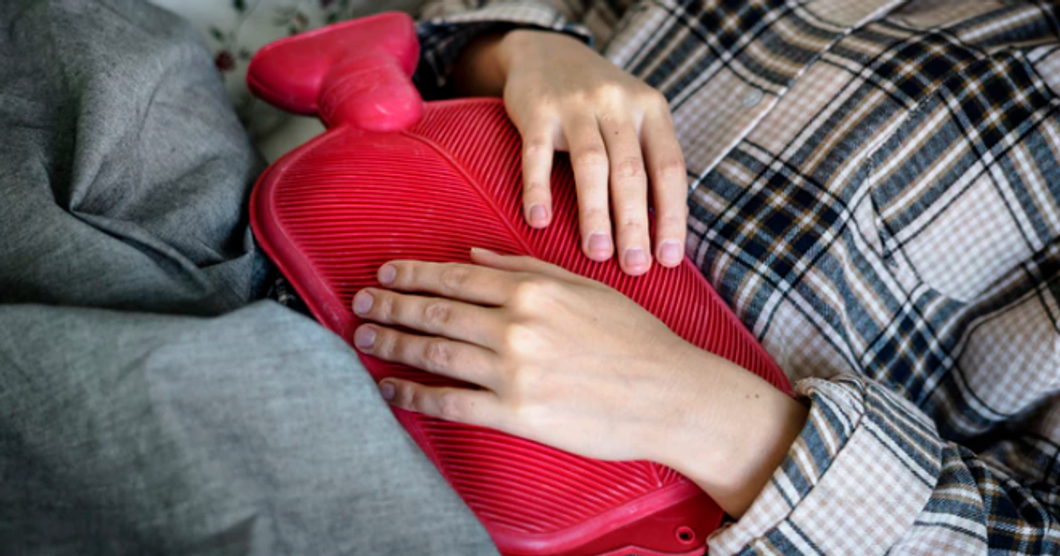I started experiencing problems when I was only nine. Horrific cramping, unexplained fevers, excessive bleeding, nausea, pain that left me unable to move...My periods were miserable. When I no longer had breaks in my cycle, simply periods of time where I was bleeding less than other times, my parents rushed me to the doctor. By middle school I was on birth control, but I was still always in pain. But I was told it was normal, so it must be fine.
When I would listen to people complaining about IUD insertion pains, I would laugh. That stuff was nothing! I needed to sit for a few minutes, then I went straight back to work and school! My cramps were so much worse! But come on, my cramps were normal, right?
At 14, I started complaining more about the pains. Then 16. Then 18, 19, 20. I had to fight with my doctors even after they found significant hormonal imbalances - after the painkillers didn't work as well as Aleve or Ibuprofen, after I was curled up in bed popping prescription anti-nausea medications. No matter what the doctors said, this wasn't normal.

I'm 21. I have an appointment to talk about surgery for endometriosis, something that should have been treated when I was a preteen. Despite my complaints, I was ignored until far too late. I will likely never have biological children, I need Botox injections every three months for related migraines, and I still have no idea whether or not I'll feel better after this surgery.
It took 12 years for my doctors to take notice, but my story is still far better than some others.
It's estimated that approximately 40% of diagnoses were either incorrect or completely missed—meaning that 40% of the things you complained about to your doctor may have been prematurely brushed aside or misdiagnosed. If we're talking about a cold misdiagnosed as allergies, this typically isn't a big deal. Unfortunately, colds aren't the only things being misdiagnosed. According to a study by the Mayo Clinic, 20% of people with serious medical conditions seen in their research facility were misdiagnosed before seeing them, and a whopping 12 million people will be misdiagnosed annually.
Sometimes these mistakes lead to tragic consequences. On 17 December 2017, 12-year-old Alyssa Alacraz died of what her parents were told was the flu, but her autopsy found something horrifying—Alyssa didn't have the flu. Instead, Alyssa had died from cardiac arrest and septic shock, the most severe form of blood poisoning called sepsis. While life-threatening, she would have had a fighting chance if she had been hospitalized immediately.
Instead, she was sent home with ibuprofen and died three days later.
You may ask: as patients, what can we do?
The answer is simple. Be the squeaky wheel. Speak up, demand results, and don't be afraid to change doctors if need be. Doctors are excellent, but sometimes it takes some time to find the right one that will listen to you and properly address your problems.
Don't be like me. Definitely don't be like Alyssa. Speak up for your health.




















